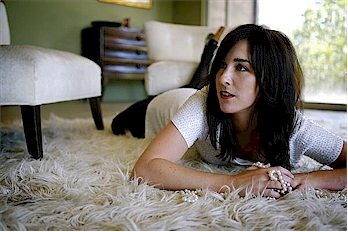 I understand I’m getting older and I recognize what that means in terms of my physical, mental, and emotional decline—weight gain, hair loss, long-term memory depletion, dry-eye, acid reflux, lower back pain, upper back pain, knee pain, joint stiffness, cotton mouth, ear wax, nose hair, wrinkles, tooth enamel decay, hearing loss, excessive flatulence, hardening of my political positions, hypertension, sensitivity to light, sensitivity to half-light, sensitivity to insensitivity, quickness to anger, slowness to recover from hangovers, and an unnerving propensity to sound like my father when arguing with my son about getting his hair cut (talk about dÁ©jÁ vu). ‘Bout the only condition I’ve been spared is the mythical four-hour erection, and there are some days when I’d welcome that. It’d take my mind off the tooth enamel decay.
I understand I’m getting older and I recognize what that means in terms of my physical, mental, and emotional decline—weight gain, hair loss, long-term memory depletion, dry-eye, acid reflux, lower back pain, upper back pain, knee pain, joint stiffness, cotton mouth, ear wax, nose hair, wrinkles, tooth enamel decay, hearing loss, excessive flatulence, hardening of my political positions, hypertension, sensitivity to light, sensitivity to half-light, sensitivity to insensitivity, quickness to anger, slowness to recover from hangovers, and an unnerving propensity to sound like my father when arguing with my son about getting his hair cut (talk about dÁ©jÁ vu). ‘Bout the only condition I’ve been spared is the mythical four-hour erection, and there are some days when I’d welcome that. It’d take my mind off the tooth enamel decay.
I say all this because I cannot remember how I came to own a copy of Holly Conlan’s third album, Fascinator. I’m guessing one of my promo buddies at one or another management company sent it to me (Conlan is represented by Shore Fire Media, so that would make sense). I typically, however, save the envelope and press material that comes with such packages, and I have none for this record. Fascinator has also been out a while (like, 15 months), which means either my promo buddy is trying to breathe new life into the record, or it’s been sitting on my desk for 15 months. Either could be true.
I will say, however, that I did not initially think I would care much for Fascinator. Conlan’s voice and song structures are immediately reminiscent of other, more famous artists in the chicks-with-pianos genre. Sara Bareilles (for whom Conlan has opened shows) comes to mind at once—the first three tracks on Fascinator sound like every Bareilles song I’ve ever heard on the radio. Conlan front-loaded her record with playful, bouncy songs containing spritely piano figures, acoustic guitar, and her honeyed, slurring vocals, and it’s not until the third track that you realize they all have the same fucking tempo (leadoff cut “You and Me” is typical of this approach). These are the least interesting songs on the album, and also, unfortunately, the only ones that casual listeners are likely to hear.
Dig in as far as “One Two Three,” the record’s fourth song, and things start to get interesting. It’s a sad ballad of real-life confusion, its protagonist taking stock at a crossroads moment, unsure of which way to go:
I don’t think I understand
I don’t think I speak the language
Messy girl with shaky hands, I thought I’d be there right now
Break my heart before it breaks, stop before I ever started
Why would I go raise the stakes
I could be home by now
One two three, what am I looking for, for
Four, five, six, seven,
I thought I’d add up to so much more
The vulnerability in Conlan’s voice is stirring; it draws you into the song without doing so obviously. The strings on the song do what strings do—provide a bit of texture, a bit of sorrowful gravitas. It’s an exquisite moment, particularly surprising after the trio of songs that came before it.
From there, Conlan and producer/hubby Al Sgro shake things up with just about every track. “Uh Oh” is an up-tempo head-bobber—a song with a rhythm that doesn’t bounce as much as it drives. “Dust in Our Hands” is another ballad; its stark, spare instrumentation provides the optimal setting for the sadness at the song’s core—a rumination about the end of something precious (a life? A relationship?), with a moving lyric of loss:
And everything else slipped away
World took its time
We still had things left to say
And sometimes the right things don’t shine
There’s not always room and there’s not always time
There’s lovelier things in the sky
And I’m looking upward
I can’t tell you why
A close listen finds some cool sonic elements that bolster the effect of Conlan’s songs. A clock effect provides the base of percussion on “Come Back Home,” and electronic bits blip just under the surface of the song. Interesting components like these lift songs above typical singer/songwriter fare; the plea at the center of the song is nothing new, but Conlan and Sgro make something compelling out of it.
Likewise, Conlan’s song structures expand on later key tracks, adding dynamic elements that lift her performances. The mid-tempo goodness of “Honey Don’t” unfolds gradually, and her languid delivery perfectly complements that pace. “Beautiful Night”—possibly the best song on the record, and it’s 12 tracks in—starts with the bouncy tempo of the album’s opening cuts, with drums front and center. About two and a half minutes through, however, it opens up with harmony and a repeated refrain, a bevy of instrumental pieces that slide in out of nowhere, and a gorgeous wordless vocal that turns the song into something else entirely. It’s a jarring and wholly satisfying ending to the song.
Conlan ends the record with “Sparkle,” a haunting piece with martial drums, subtle orchestral flourishes, and a perfectly uncertain sentiment at its center:
I don’t know how to follow
But I don’t think I should steer
I am asleep at the wheel now
I don’t know why I am here
But I’ll keep running around
But I’ll keep running around
I’ll keep running around ’till you see me
 Fascinator rewards listeners’ patience and diligence—its many virtues reveal themselves as the record progresses, which can be problematic when those listeners lack both patience and diligence in a singles-oriented, MP3-centric music climate. This is one of many instances when I am grateful for the strictures I’ve imposed upon myself in this column—namely, that I have to listen to everything I’m presented with. I don’t know that I would have made it through the record otherwise. I’m certainly glad I did, though, and I recommend it to those readers looking for new voices to include in their listening rotations and iPod playlists.
Fascinator rewards listeners’ patience and diligence—its many virtues reveal themselves as the record progresses, which can be problematic when those listeners lack both patience and diligence in a singles-oriented, MP3-centric music climate. This is one of many instances when I am grateful for the strictures I’ve imposed upon myself in this column—namely, that I have to listen to everything I’m presented with. I don’t know that I would have made it through the record otherwise. I’m certainly glad I did, though, and I recommend it to those readers looking for new voices to include in their listening rotations and iPod playlists.
I just wish I could remember how I got the damned thing.




Comments